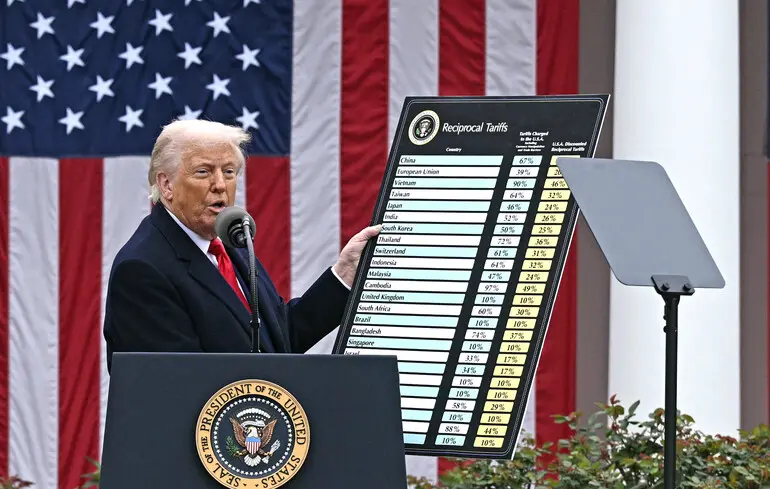Legal Ruling Declares Trump’s Tariffs Unlawful, Sparking New Political and Legal Debates

On Friday, the United States Court of Appeals issued a significant ruling that fundamentally questions the legitimacy of most tariffs imposed by former President Donald Trump.
The court determined that the majority of the tariffs enacted under Trump’s trade policies are illegal under existing legislation, opening a new chapter in international legal disputes and political conflicts over trade sanctions.
At the same time, the court allowed these restrictions to remain in effect until October 14, providing the Trump administration with time to appeal to the US Supreme Court.
During his second term, Trump employed tariffs as a key foreign policy tool, using them to pressure trade partners and renegotiate agreements with exporting countries such as China, Canada, and Mexico.
However, the judiciary criticized these actions, emphasizing that the constitutional authority for setting duties and tariffs rests with Congress.
The court pointed out that laws, including the International Emergency Economic Powers Act (IEEPA), which Trump relied upon, have a limited scope and do not explicitly authorize the direct imposition of tariffs by the president.
This verdict raises questions about the legality of trade policies based on such legal frameworks and could lead to further litigation.
The ruling, supported by a majority of judges, underscores ongoing debates about the proper constitutional basis for tariff imposition and signals the potential for additional lawsuits challenging presidential trade measures.
Legal analysts note that any attempt by a president to unilaterally set tariffs without congressional approval violates the constitutional separation of powers.
Notably, this decision does not affect other tariffs imposed by Trump, such as those on steel and aluminum imports, which remain valid.
Political and legal experts are already discussing the implications of this ruling for future US trade policies and the possibility of the Supreme Court overturning or reinforcing these legal interpretations in upcoming cases.

